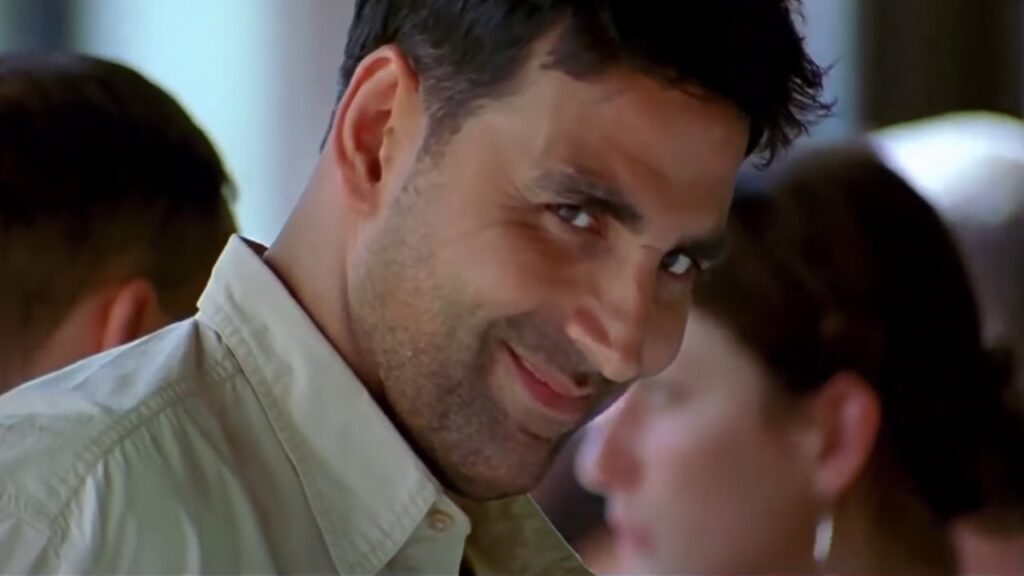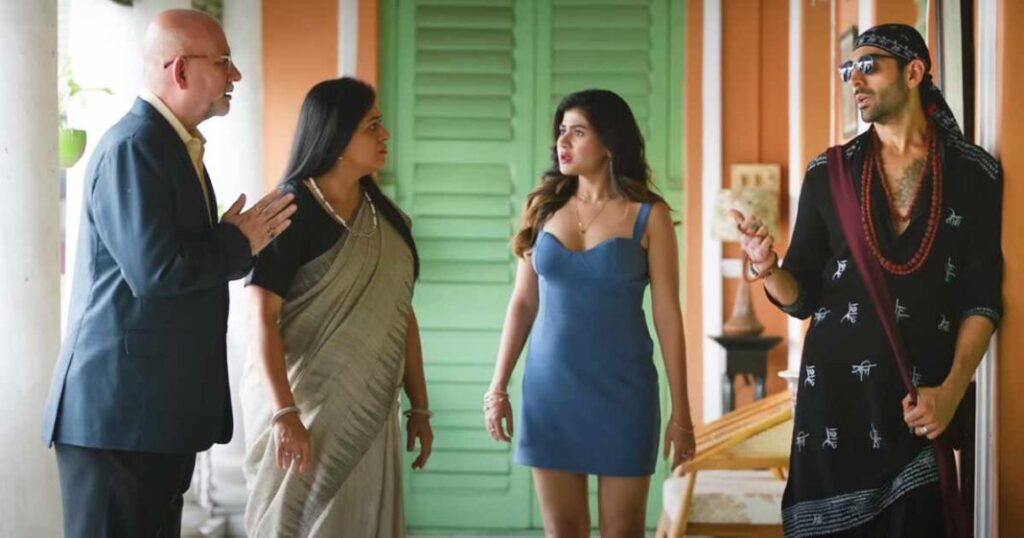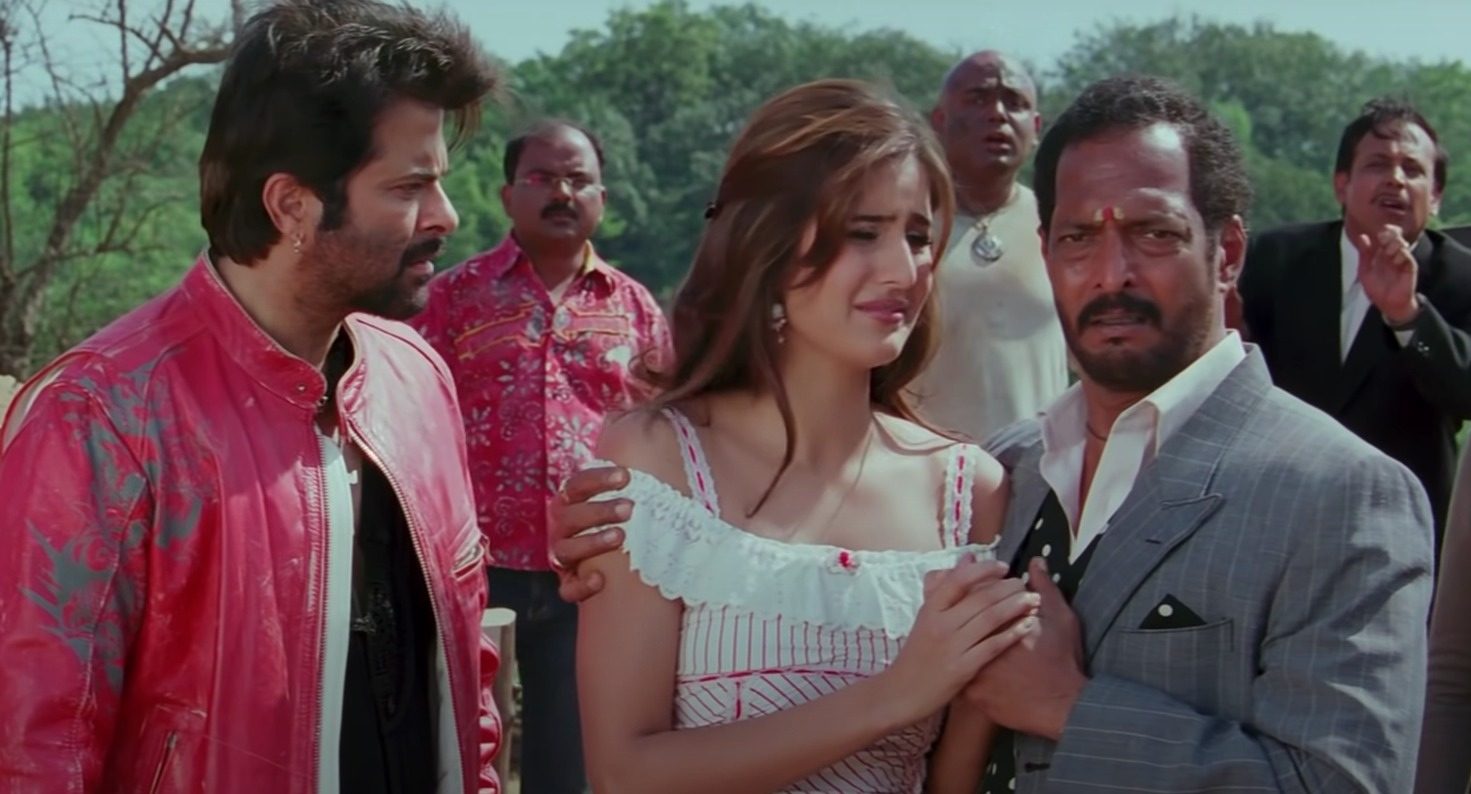I wasn’t even a teenager when I first watched Welcome by Anees Bazmee in a single-screen theater. For a 7-year-old, a movie like that can be magical. I wasn’t seeking profound storytelling or witty pop-culture references. What I did understand, though, was that the comedy made me laugh harder than ever before.
From Majnu Bhai’s live portrait on a busy street to Dr. Ghungroo clinging for his life at the edge of a building, every scene was meticulously designed to build humor through the sheer absurdity of the situations. The theater was alive with laughter, and I left without a single thought for my next day’s homework or exams.
Now, in 2024, as a corporate employee with a more refined sense of humor, I long for comedies that offer the same mix of situational humor and heart. Bollywood today, though, seems to have lost its way with comedy, relying more on pop-culture references, superficial jokes, and unnecessary edginess rather than creating well-crafted, situational humor. Let’s break down why Bollywood comedies seem to be struggling today.
The Decline of Situational Comedy in Bollywood

The ability of classic Bollywood comedies like Welcome, Hera Pheri, and Jaane Bhi Do Yaaron to draw laughs wasn’t merely in their gags but in how they mined humor from absurd situations. The most memorable scenes from these films weren’t about specific jokes or dialogues but about the predicament of the characters and the brilliant timing and expression of the actors. Phir Hera Pheri’s iconic “25 din mein paisa double” scene wasn’t just funny for the dialogue—it was hilarious because we had invested in each character’s struggles and quirks.
However, Bollywood comedies today are often less about situational humor and more about trying to appear “cool” by incorporating edgy jokes and pop culture references. Take the Fukrey series as an example. While the first film did have a unique flavor, it still leaned on its characters’ over-the-top personas to get laughs, with repetitive humor that relied on specific catchphrases rather than developing situations. This approach might get a few laughs, but it lacks the timelessness that comes from universal, relatable setups.
Hollywood as a Counterpoint
Hollywood has also evolved its approach to comedy over the years, but it still finds ways to incorporate situational humor effectively. Shows like The Office and movies like Superbad create humor out of character-based situations rather than relying on catchphrases or pop culture name-dropping. Bollywood could take a page from this style by returning to its roots of situational comedy.
Comedy Movies Need a Narrative to Be Funny

Bollywood’s golden age of comedies owes much to the genius of directors like Priyadarshan, who understood that a strong narrative is essential for lasting humor. In De Dana Dan, for instance, the humor was sustained by a story involving multiple characters with clashing motivations and goals. The comedy didn’t just exist in the dialogues but in how characters, like Nitin Bankar and Chadda, navigated their chaotic circumstances. The audience invested in these characters because they had well-defined motivations and personalities, so the ridiculous situations they landed in felt funnier and more compelling.
Today’s Bollywood comedies, by contrast, often abandon narrative depth in favor of forcing laughs. There’s an incessant need to make the audience laugh every minute, which leads to quick, disjointed gags with little continuity or character development. Films throw out one-liners or force in scenes intended solely for a laugh, with little thought for how they contribute to the story.
The Importance of Character-Driven Comedy
Look at how American sitcoms like Parks and Recreation build comedy around character growth. The audience laughs not just at the jokes but at how the jokes reveal and reinforce who each character is. Bollywood’s classics did this well—each character was so distinct and memorable that even years later, we remember Hera Pheri’s Baburao and Andaz Apna Apna’s Crime Master Gogo. A strong story with defined characters gives the comedy room to breathe and ensures that laughs come from genuinely funny situations.
The Need for Edginess Has Undermined Comedy

In the past, Bollywood comedies weren’t afraid to offend, and while this sometimes led to jokes that haven’t aged well, it also gave us boundary-pushing, satirical films like Jaane Bhi Do Yaaron. That film, for example, fearlessly tackled social and political issues with dark humor, creating a comedy that resonates even today. However, Bollywood now finds itself constrained by the fear of backlash, particularly in an era dominated by Gen Z and “cancel culture.”
The hesitance to incorporate any element of satire or irony has taken a toll on Bollywood comedies, making them predictable and watered-down. Directors avoid political satire and cultural critique, and so the humor becomes superficial, relying instead on tired tropes like slapstick or sexual innuendos, or worse—worn-out pop culture references that feel desperate rather than fresh.
Risks in Political Satire
Though filmmakers today are understandably cautious about offending, Bollywood can still incorporate satire in ways that comment on society without alienating audiences. Recent films like Article 15 and Newton have shown that audiences are open to political commentary. A revival of comedy with a satirical edge could rejuvenate the genre if handled with intelligence and wit.
The Over-Reliance on Pop Culture References

The proliferation of pop culture references in Bollywood comedies has become a crutch rather than an asset. Movies like Stree and Bhool Bhulaiyaa 2 lean so heavily on these references that they lose sight of actual humor. In Bhool Bhulaiyaa 2, jokes often revolve around mimicry or nods to popular trends, missing the mark on delivering an authentic comedy experience.
While pop culture references can be funny, overuse without meaningful context makes them feel hollow. Hollywood uses these references to a great extent as well, but typically in ways that complement the humor and narrative rather than replacing it. Films like Deadpool and Shrek pack in references, yet they remain hilarious because they use those references to enhance, not overwhelm, the story.
Returning to Timeless Humor
Instead of chasing short-lived trends, Bollywood could benefit from investing in timeless themes and humor. The essence of situational comedy is that it doesn’t rely on any external trends. For instance, Angoor, adapted from Shakespeare’s The Comedy of Errors, remains relatable because it captures universal human follies.
Playing It Too Safe with Censoring Humor

Bollywood’s reluctance to challenge norms has also contributed to the decline of its comedy. Fear of backlash has meant that filmmakers are less willing to push boundaries, opting instead to play it safe. This means we rarely see the kind of bold humor that made Jaane Bhi Do Yaaron or Chupke Chupke so memorable. Censoring creativity limits what filmmakers can explore, and what audiences get are sanitized, “safe” films that neither provoke thought nor inspire genuine laughter.
Though it’s crucial to avoid jokes that demean or reinforce negative stereotypes, comedy should still have the freedom to comment on society. Many old Bollywood comedies poked fun at cultural taboos or societal norms, offering fresh perspectives. Modern Bollywood, however, too often shies away from exploring deeper issues or making biting social commentary.
Can Bollywood Comedy Make a Comeback?
With the exponential decline in the quality of Bollywood comedies, it’s easy to feel that the golden era is lost forever. Stalwarts like Priyadarshan, who once defined the genre, have faded, and even promising directors like Anees Bazmee have started leaning into cringe-worthy humor rather than the kind of sharp, situational comedy that once set their films apart.
However, there’s still hope. The recent success of shows like Panchayat and Gullak on streaming platforms, which rely on simple, relatable humor rather than big-budget slapstick or overused references, shows that audiences still crave good situational comedy.
If Bollywood can learn from these examples and return to the fundamentals of strong narratives, well-defined characters, and timeless humor, we might just see the resurgence of comedy that truly makes us laugh, feel, and remember.

Chaitanya Tuteja is someone who enjoys sharing his thoughts on books, movies, and shows. Based in India, he appreciates exploring different stories and offering honest reflections. When not reflecting on his favorite media, Chaitanya enjoys discovering new ideas and embracing life’s simple moments.


Данный ресурс — цифровая витрина профессионального детективного агентства.
Мы предлагаем услуги в сфере сыскной деятельности.
Коллектив детективов работает с предельной конфиденциальностью.
Мы занимаемся поиски людей и выявление рисков.
Нанять детектива
Каждое дело рассматривается индивидуально.
Мы используем эффективные инструменты и ориентируемся на правовые стандарты.
Ищете настоящих профессионалов — свяжитесь с нами.
На этом сайте вы сможете найти свежие новости Краснодара.
Здесь собраны актуальные события города, репортажи и оперативная информация.
Будьте в курсе развития событий и получайте информацию из первых рук.
Если вам интересно, что нового в Краснодаре, читайте наш сайт регулярно!
https://rftimes.ru/
Our platform provides many types of medications for online purchase.
Anyone can securely order essential medicines from anywhere.
Our product list includes popular drugs and specialty items.
All products is sourced from trusted pharmacies.
cenforce d tablets
We prioritize user protection, with data protection and prompt delivery.
Whether you’re looking for daily supplements, you’ll find trusted options here.
Explore our selection today and enjoy trusted access to medicine.
The site provides many types of medications for online purchase.
Customers are able to quickly order health products with just a few clicks.
Our catalog includes standard treatments and specialty items.
All products is supplied through trusted distributors.
priligy 30 mg
Our focus is on user protection, with data protection and timely service.
Whether you’re treating a cold, you’ll find affordable choices here.
Explore our selection today and get trusted access to medicine.